
UNE's associate provost for Research and Scholarship reflects on her 2023 stay in Spain researching novel disease treatments
Karen Houseknecht was the first in her family to go to college. In 2023, she became a Fulbright Senior Scholar.
Houseknecht, Ph.D., associate provost for Research and Scholarship at the University of New England and professor of pharmacology within the College of Osteopathic Medicine, was honored with the prestigious award to travel and work in Madrid, Spain, from February to May 2023.
There, she served as Senior Scholar in Pharmacology within the College of Medicine at the Autonomous University of Madrid (UAM; Universidad Autónoma de Madrid), where she conducted research on her proposal “Integrating Mechanisms Regulating Metabolism and Dementia: A Transdisciplinary Approach” alongside host Manuela Garcia Lopez, M.D., Ph.D., director of UAM’s Teofilo Hernando Institute for Drug Discovery.
In addition to lecturing on pharmacology and drug development, the focus of her fellowship was to collaborate with faculty in the neuropharmacology team to evaluate novel therapeutic approaches for Alzheimer’s disease, including the potential of using current diabetes medications to delay or prevent dementia. The long-term goal of her research, she said, is to aid in the discovery of new treatments with a focus on improved quality of life and patient safety.
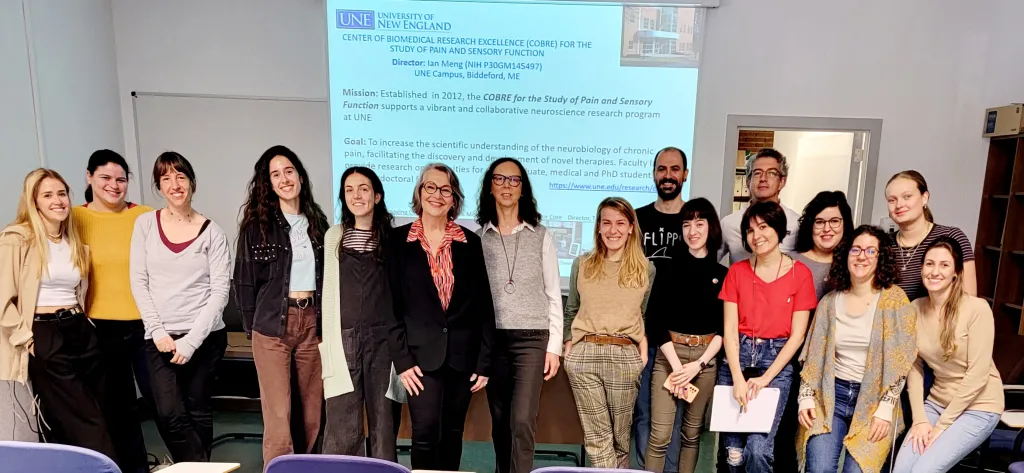
Houseknecht (center) poses with researchers from the Neuroprotection Laboratory at Universidad Autónoma de Madrid, where she researched drug discovery for conditions including diabetes and dementia. At right, she stands in front of the College of Medicine building at the university in Spain’s capital.
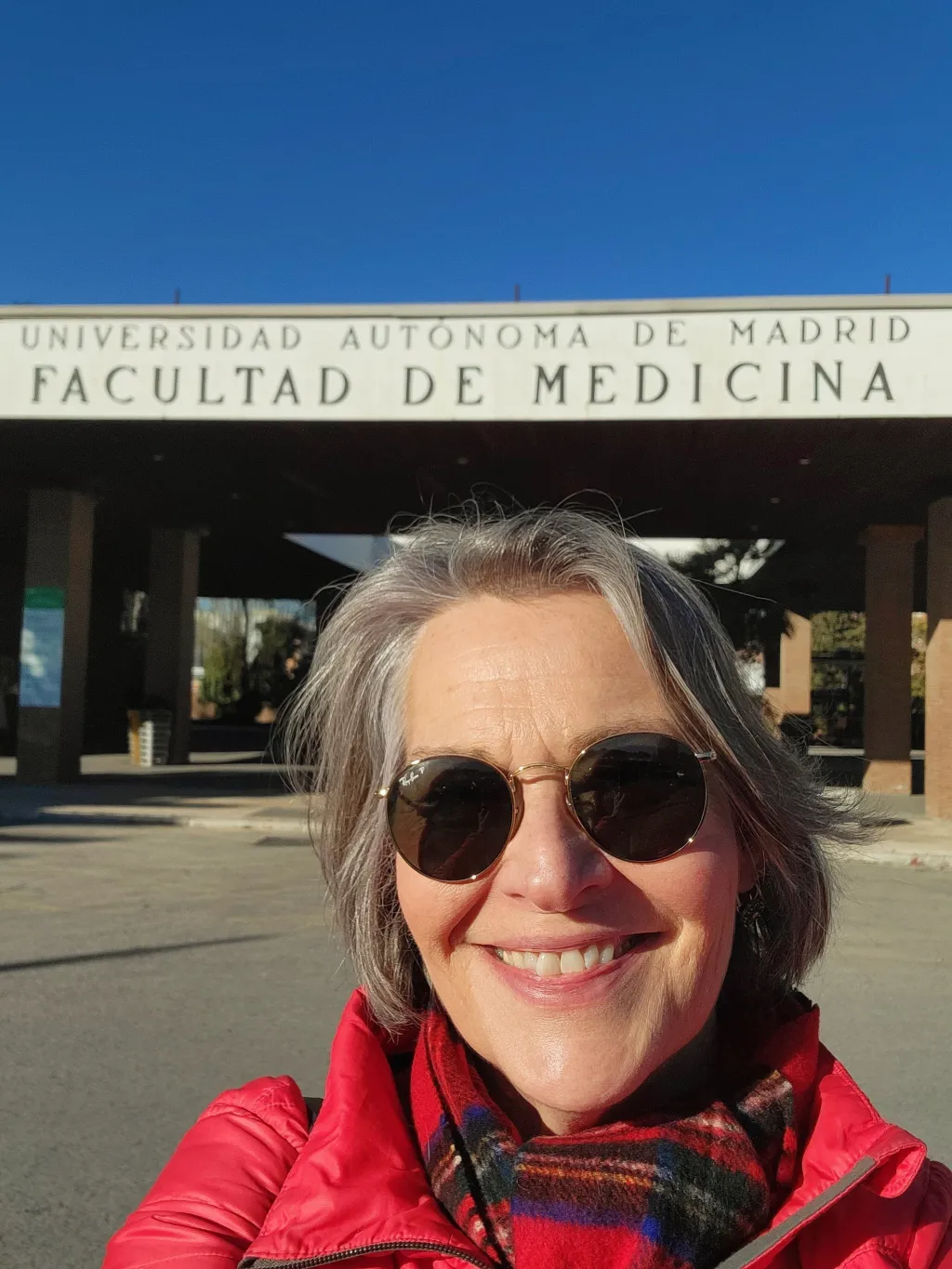
“Interdisciplinary research collaborations enable us to expand our science to ask bigger, more integrated questions as we seek to find solutions to complex problems like treating dementia,” Houseknecht remarked. “I learned so much from the scientists in the neuropsychopharmacology team, and it was fun to share my perspective as a diabetes researcher and drug discovery scientist. I’m hopeful this collaboration will be a long and productive one.”
Houseknecht is a pharmacologist whose research lies at the interface of neuroscience and endocrinology, focusing on understanding factors that regulate mood and metabolism, including diabetes. A prominent biomedical researcher, she received her Ph.D. from Cornell University and completed post-doctoral training as an Endocrine Fellow at the Beth Israel Hospital at Harvard Medical School.
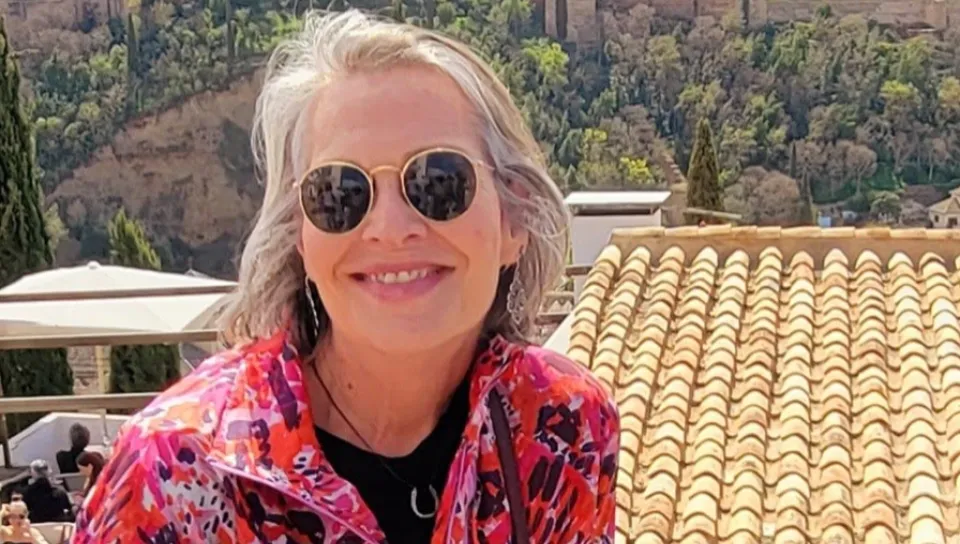


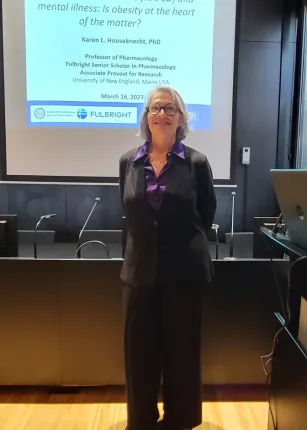

Established by Congress in 1946, the Fulbright Program is the U.S. government's flagship international educational exchange program, created to increase mutual understanding between the people of the United States and those of other countries.
The Fulbright Program is the oldest running program at the U.S. Department of State, and Houseknecht joins the more than 400,000 students, scholars, teachers, artists, and scientists chosen for their academic merit and leadership potential who, through the Fulbright Program, have been given the opportunity to study, teach, conduct research, exchange ideas, and contribute to finding solutions to shared international concerns.
Houseknecht spoke fondly of her time in Spain, where she lived in Madrid’s famed Puerta del Sol (“Gate of the Sun”) and immersed herself in Spanish daily life, with excursions reflecting the intersection of science and culture.
During her trip, Houseknecht shared her research in presentations at universities and research institutes in Madrid and Granada. While in the latter, Houseknecht celebrated the 10-year anniversary of an exchange program between the UNE College of Pharmacy and the College of Pharmacy at the University of Granada (UGR; Universidad de Granada).
The exchange program is designed to expose pharmacy students to the differences between European and United States health care policies and to raise awareness about the impact of culture on health care decisions and policy making. The program is part of UNE’s goal to graduate students who are competent global citizens with knowledge of the world’s cultures.
At UGR, Houseknecht met with the dean of UGR’s Pharmacy program and participated in a recruiting session for UGR pharmacy students.
Other experiences included a diplomatic envoy to Tangier, Morocco (where UNE has a study abroad campus); where she immersed herself in the pageantry of Semana Santa (Easter) in Seville, an experience she called “a transformative moment.”
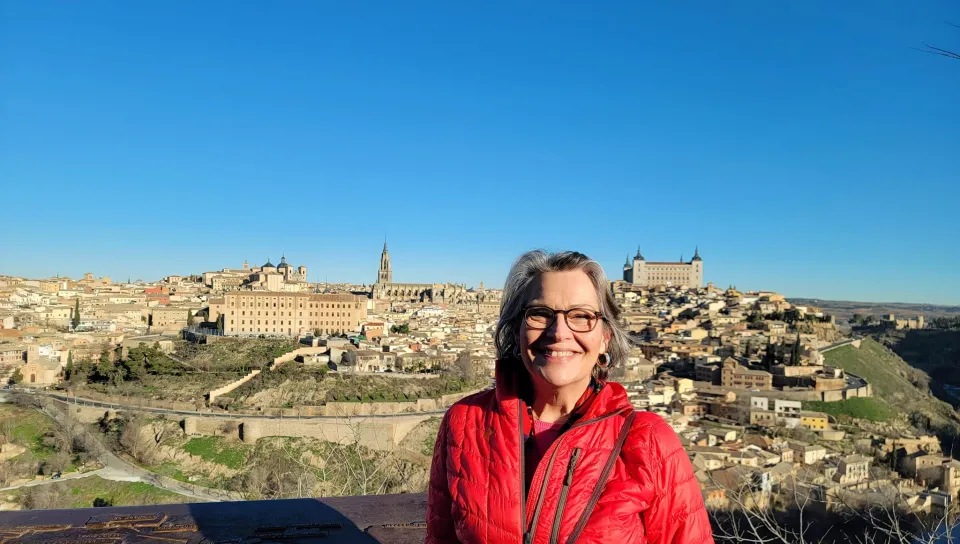

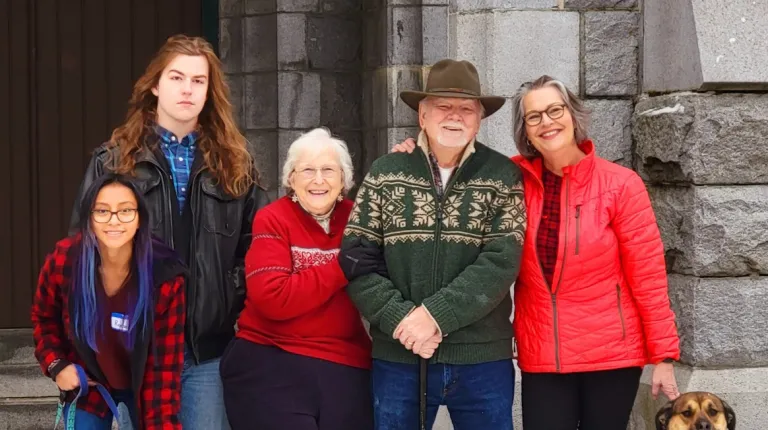

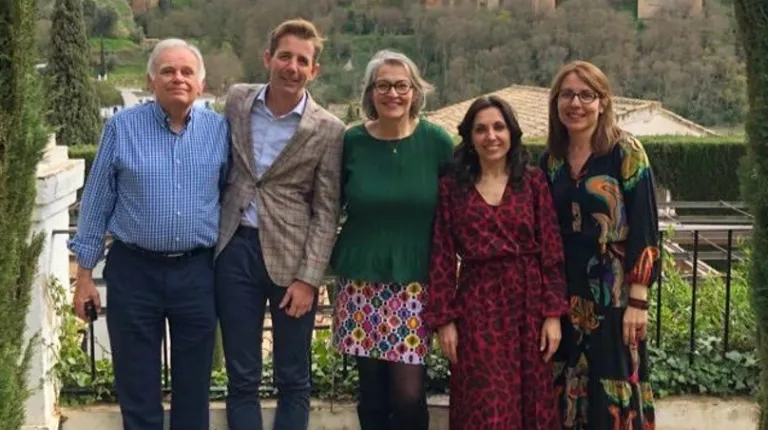
Back home, she spoke about her role in engaging in citizen diplomacy, reflecting that her trip was about making connections and overcoming adversity.
“One of the compelling aspects of the Fulbright program is that it is focused on the power of citizen diplomacy to build international understanding and, ultimately, contribute to world peace,” Houseknecht said. As Fulbrighters, we are charged by the Department of State to serve as citizen diplomats, to share our personal stories, and to immerse ourselves in the local cultures in order to gain global perspective and to engage in conversations — sometimes difficult conversations — about political and cultural differences in order to better solve shared problems.
“The program is also designed for American scholars to gain perspective on living and working in places where we may not speak the language and must learn a new way of interacting in the world,” she added. “I’m so honored, and grateful, to have had this opportunity for service and personal growth.”
Gwen Mahon, UNE provost and senior vice president for Academic Affairs, praised Houseknecht for her work and remarked that, though her Fulbright experience was not traditional, it should serve as an inspiration to all UNE faculty.
“Karen’s Fulbright experience underscores the immense value of international exchange in contributing to academia and developing noble global solutions,” Mahon remarked. “Her dedication to cross-cultural collaboration not only enhances UNE’s global presence but also serves as an inspiring model for faculty seeking to broaden their horizons and enrich scholarly pursuits.”